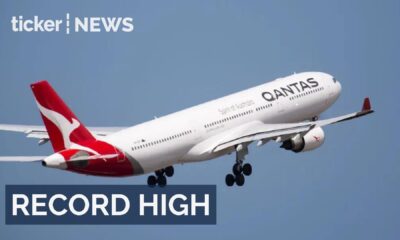Money
Elon Musk accuses Twitter of fraud in updated counterclaim
Money
Australia’s inflation report and Nvidia earnings impact explained
Australia’s inflation report sparks market shifts, influencing interest rates, the Aussie dollar, and investor sentiment amid Nvidia’s earnings.
Money
U.S. stocks rally as AMD, Home Depot, and AI software lead gains
U.S. equities rose as AI disruption fears eased, with Home Depot, AMD, and DocuSign driving tech stock gains.
Money
Stocks tumble amid AI concerns and Trump tariff update
Dow drops 800+ points as AI and trade worries hit tech and retail stocks; bonds rise amid market volatility.
-



 Tech4 days ago
Tech4 days agoMeta launches lawsuits over alleged scam advertising operations
-



 Money5 days ago
Money5 days agoAustralia’s inflation report and Nvidia earnings impact explained
-



 News2 days ago
News2 days agoCrude oil prices spike amid U.S.-Israel military action
-



 News2 days ago
News2 days agoIran warns ships to avoid Strait of Hormuz
-



 News2 days ago
News2 days agoU.S. and Israel attack Iran, escalating regional conflict
-



 News21 hours ago
News21 hours agoIran live updates: Trump Says Iran strikes to continue for four to five weeks
-



 Tech5 days ago
Tech5 days agoNvidia earnings soar as AI drives 75% revenue growth
-



 News5 days ago
News5 days agoQantas announces 8,500 jobs and frequent flyer changes



